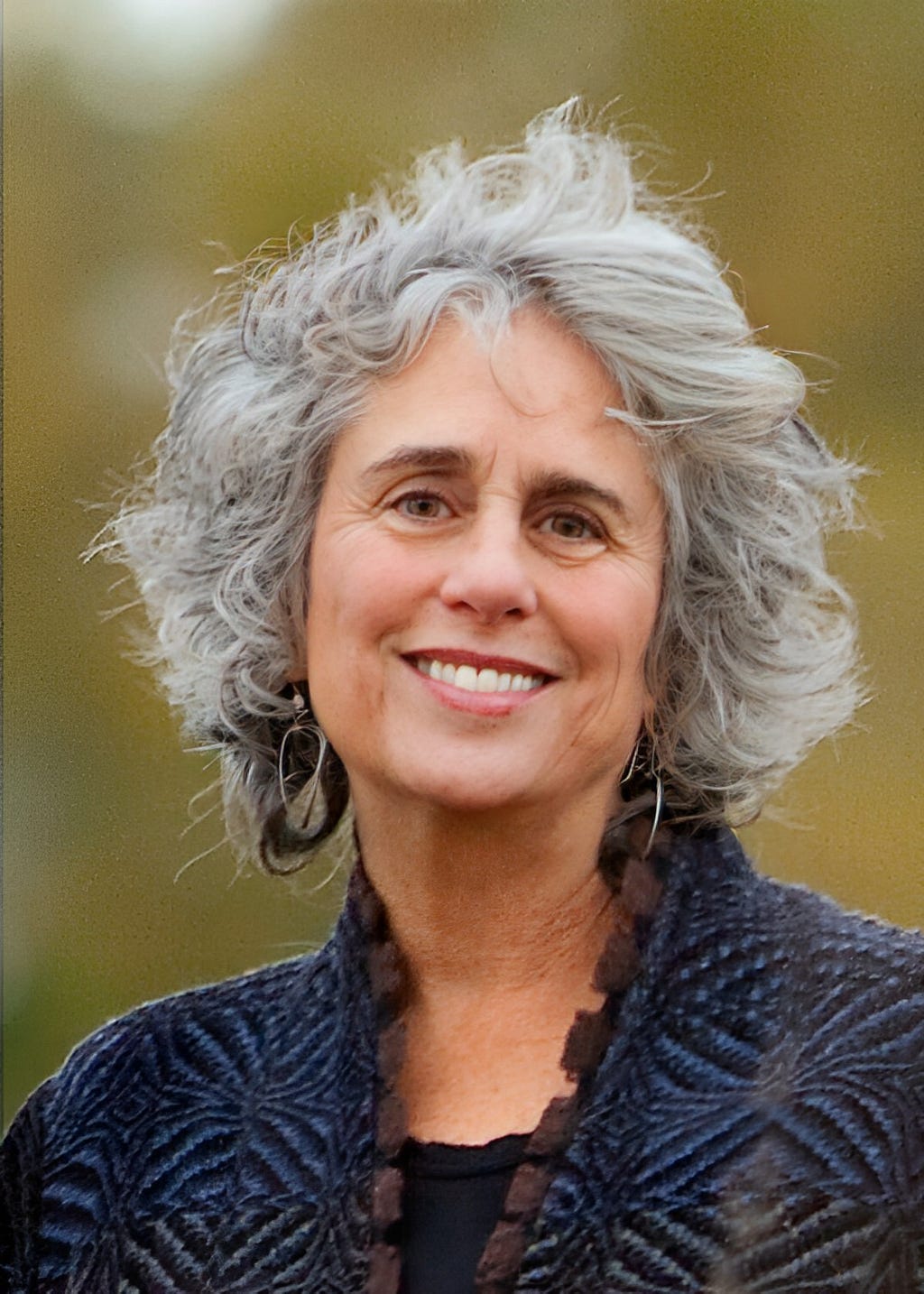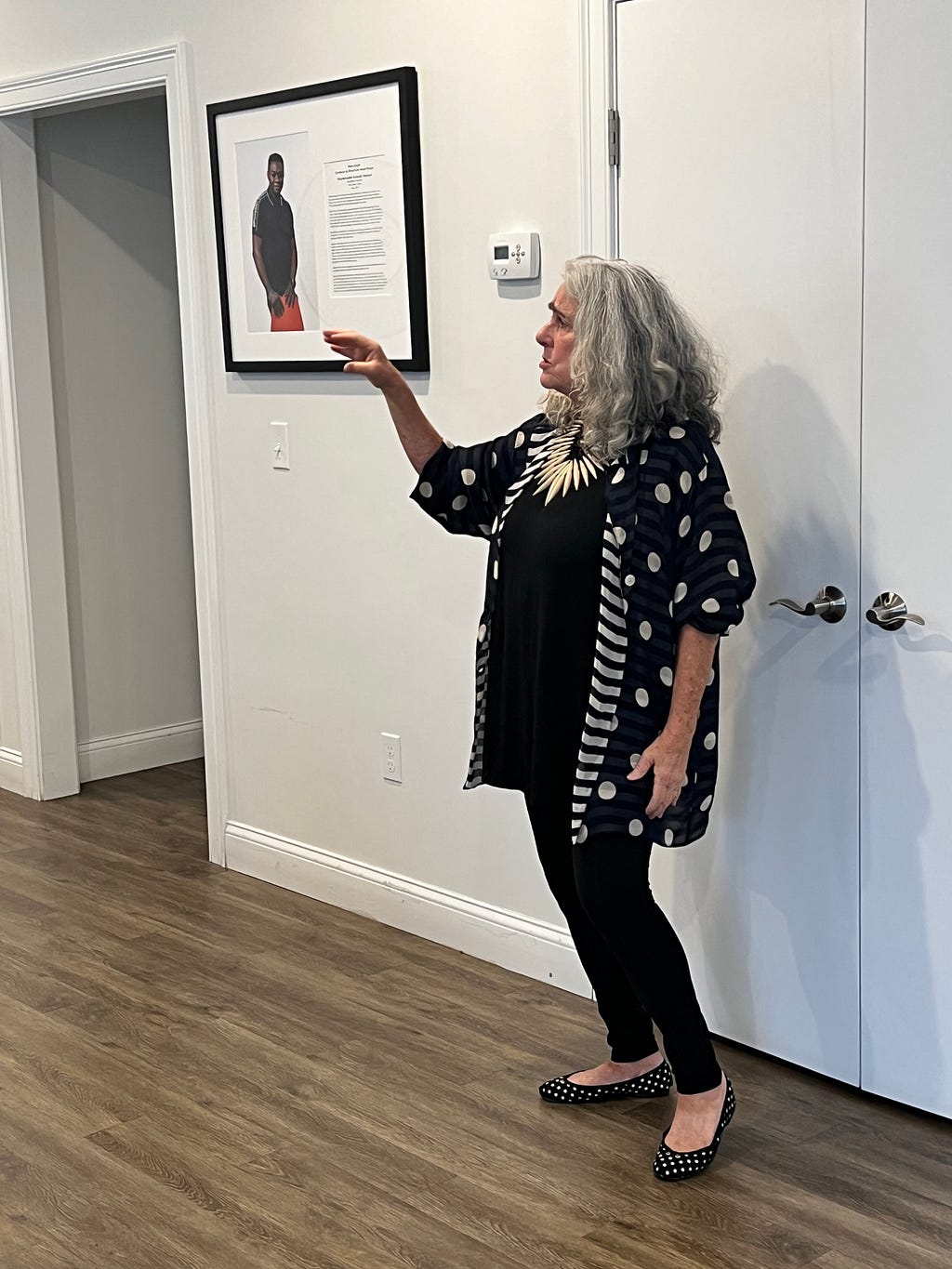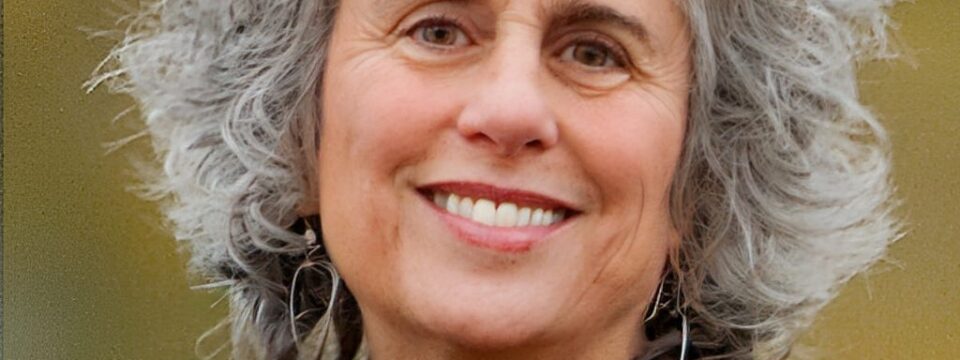Social Impact Heroes: Why & How Barbara Salisbury of MAB Community Services Is Helping To Change Our World

It’s important to identify what motivates each individual. This allows for greater understanding and connections, which helps to build better communities.
As part of my series about “individuals and organizations making an important social impact”, I had the pleasure of interviewing Barbara Salisbury.
Barbara Salisbury has been chief executive officer of MAB Community Services since 2006. She was formerly budget director for the Commonwealth of Massachusetts and administrative dean of the Kennedy School of Government at Harvard University.
Thank you so much for joining us in this interview series! Can you tell us a story about what brought you to this specific career path?
From an early age, I’ve had an innate desire to serve others. I grew up in the Jewish tradition of Tikkun Olam, meaning “repair of the world,” which acted as an important guiding force in my life. I can remember being nine years old, convincing my friends to make Easter baskets out of discarded cottage cheese cartons to bring to children in our local hospital. So, I think I was largely predestined to follow a career path where I could make a difference in my community, first serving as state budget director, then as Administrative Dean of the Harvard Kennedy School of Government, and now as the CEO of MAB Community Services.
Can you share the most interesting story that happened to you since you began leading your company or organization?
I love the story behind the Maxo Joseph Excellence in Direct Care Awards, which began during my time as CEO of MAB. Following the passing of an exceptional caregiver and colleague named Maxo Joseph in 2020, a donor approached MAB saying he wanted to recognize hardworking people like Maxo who seldom get the acknowledgement and appreciation they truly deserve. As a result, the Maxo Joseph Awards were established in 2021 to recognize and reward direct care staff in MAB’s Adult Disability Services division who go above and beyond in their commitment to the participants they support. The awards total $50,000 annually, with individual awards ranging from $2,000 to $10,000.
These awards have had a significant impact on staff retention and morale. It’s amazing to watch the teams in each of MAB’s group homes root for their colleagues to be selected. During the awards ceremony, the honorees speak directly from the heart and share what working in direct care means to them. There is true dignity in these awards, and they’ve helped me realize that it’s not just ideas that are important, but the people who make them happen.
It has been said that our mistakes can be our greatest teachers. Can you share a story about the funniest mistake you made when you were first starting? Can you tell us what lesson you learned from that?
When I first started at MAB, I mailed various materials out to individuals who were blind, including Board members, not realizing until afterwards that they wouldn’t be able to read them. This experience reinforced the notion that equity is not limited to what MAB does for those we serve and that it must be part of who we are as an organization that stands for disability justice. With a couple of small adjustments on my end, I was able to ensure all stakeholders could fully participate and I could benefit from their involvement and input. So much of the world isn’t designed with everyone in mind and it is incumbent upon us all to push for greater equity in society, inside and out.
Can you describe how you or your organization is making a significant social impact?
MAB’s focused on supporting people with disabilities as they develop the skills needed to have agency over their lives. Rather than doing things for people with disabilities, MAB recognizes their own wants and needs and supports them in living the lives that they want.
For example, instead of sequestering adults with acquired brain injuries (ABIs) into nursing homes where staffing is constructed to do everything for patients, MAB operates community-based residential programs through Massachusetts’ ABI Waiver Program. In these programs, adults are matched by age and background and placed in accessible homes within their communities where occupational therapists provide vocational training and rehabilitation to support residents in relearning skills and regaining independence.
Similarly, MAB also offers adjustment counseling for individuals who become blind to help them regain agency over their lives. Participants are matched with blind therapists who can personally and authentically understand their lived experience, which can help the newly diagnosed quell feelings of anxiety and depression and instead realize their ability to adapt and thrive.
Can you tell us a story about a particular individual who was impacted or helped by your cause?
Someone I’ve been really struck by is Amanda Smart, a former student at MAB’s Ivy Street School. Amanda first came to the Ivy Street School at 17 years old after surviving a head-on car collision on her way home from soccer practice. She had to relearn many skills that came easily to her before, like walking and talking. Now, after many years of work, Amanda continues to amaze me — she previously ran for Boston City Council in 2019, and now works in a position where she organizes activities for elderly people in assisted living. I’m inspired by her perseverance and her commitment not only to herself and her own growth, but to the people around her. She is living proof that there are no limits to what people with disabilities can achieve when they have the right support.
Are there three things the community/society/politicians can do to help you address the root of the problem you are trying to solve?
First, there needs to be greater understanding of the need for higher wages for direct care staff. Unlike patients in hospitals, people with disabilities who reside in group homes are often there for the rest of their lives. Therefore, it is critical to have dedicated, compassionate staff who not only focus on health and safety, but also on community activities and creating spaces that truly feel like home. To attract this kind of talent, society needs to offer higher wages that fairly compensate direct care staff for their tireless efforts.
Second, society needs to better recognize and accept the dignity of risk. A common misconception is that people must do everything they can do to keep people with disabilities safe. While this often reflects good intentions, it’s important to understand that overly fixating on safety can be detrimental to the individual. Instead of coddling people with disabilities because they “can’t” do something, it’s crucial to empower decision making with reasonable risk and allow for learning from any mistakes made. Of course, it’s important to protect against danger, but giving people with disabilities the dignity to choose where they’re comfortable taking risks is a critical facet of self-determination.
Third, communities need to better assist young people in their transition to adulthood. Although society invests a lot in programs for children under 22, it’s important to continue supporting individuals even after they turn 22 to ensure they can launch careers, live more independently, and successfully transition to adulthood — which benefits both these individuals and society as a whole. MAB works to support neurodivergent youth in their transition to adulthood through the “Skills for Life” program. In this program, occupational therapists work directly with participants in their homes and communities developing skills for self-fulfilling lives, helping them to integrate into their communities and achieve their own personal goals.
How do you define “Leadership”? Can you explain what you mean or give an example?
Leadership is doing the right thing, whether it’s popular or not. When I worked as state budget director under former Massachusetts Governor Michael Dukakis, there was a woman working in the administration named Linda Glenn who I look up to for embodying this spirit. At the time, institutionalization was the most popular approach for caring for people with intellectual disabilities. However, institutions often left people with intellectual disabilities sequestered away from the rest of society in largely subpar facilities. Linda helped to initiate a transition in Massachusetts where people with intellectual disabilities were integrated into their communities rather than closed off in these institutions. Although there was significant opposition to this deinstitutionalization process due to its newness and unfamiliarity initially, Linda persevered, and today people with intellectual disabilities have access to much more community support than they otherwise would. MAB honored Linda several years ago for this tremendous leadership.

What are your “5 things I wish someone told me when I first started” and why. Please share a story or example for each.
First, relationships are everything. We’re all taught to master the hard skills of our jobs, but relationships are at the heart of true progress and changemaking.
Second, look at the numbers. This can be a tedious task, but it can shed light on where exactly a problem lies and can even offer insight needed to identify appropriate solutions.
Third, it’s critical to look for the magic bullet, the missing piece, the idea that will make your program or organization more effective. During my time at MAB, I’ve quickly realized that our magic bullet is our staff — and as a result, we’ve made diligent efforts to invest in them through programs like the Maxo Joseph Awards.
Fourth, prioritize DE&I efforts. It’s important not only to build a diverse organization, but to foster a culture and community where everyone belongs. During the pandemic, MAB worked with local restaurants to provide meals to our staff. Early on in this initiative, we realized it was during Ramadan, so none of our Muslim staff could enjoy the food until after sundown. To rectify this oversight, we provided takeout containers, and gave our staff dates to symbolize the start of the year in line with the Ramadan tradition.
Finally, it’s important to identify what motivates each individual. This allows for greater understanding and connections, which helps to build better communities.
You are a person of enormous influence. If you could inspire a movement that would bring the most amount of good to the most amount of people, what would that be? You never know what your idea can trigger. 🙂
There are so many big issues out there, but something I learned late in life is the power of community. No matter what it may be, it’s important to recognize when you need help and feel comfortable in reaching out to your network for support. I can remember playing Monopoly with my son when he was five years old, and he ran out of money in the game. While many people may have used this situation as an example to illustrate that sometimes you just lose and life can be tough, I used it as an opportunity to teach my son the power of relationship-building. I told him he could make a deal with me and try to figure out a way to be successful in the game — and at the end of the day, I think that was a much more empowering lesson. In the broader sense, I similarly want to inspire people en masse to appreciate their communities and to build effective relationships for the greater good.
Can you please give us your favorite “Life Lesson Quote”? Can you share how that was relevant to you in your life?
An idea that really resonates with me is that you have the power to create your own reality. So many of us feel that we have to react to what life imposes on us, but we can take the initiative and create the reality we want for ourselves. That concept is at the heart of MAB’s mission — no matter what your place in life, we want everyone to have the tools and supports they need to live their lives with agency.
Is there a person in the world, or in the US with whom you would like to have a private breakfast or lunch with, and why? He or she might just see this, especially if we tag them. 🙂
I would really love to have the opportunity to meet Geoffrey Canada, the president of Harlem Children’s Zone (HCZ). Under his direction, HCZ has received significant resources to fund education and poverty-fighting efforts, today serving more than 34,000 students and families living in a 97-block area of Central Harlem in New York City. I want to hear what Geoffrey has learned from these experiences. Most of us never get all the resources we need to address something, so I would be interested in learning how Geoffrey has tackled the issues he’s passionate about, and what’s had the greatest impact.
How can our readers further follow your work online?
You can learn more about MAB’s work on our website: https://www.mabcommunity.org/
This was very meaningful, thank you so much. We wish you only continued success in your great work!
Social Impact Heroes: Why & How Barbara Salisbury of MAB Community Services Is Helping To Change… was originally published in Authority Magazine on Medium, where people are continuing the conversation by highlighting and responding to this story.
